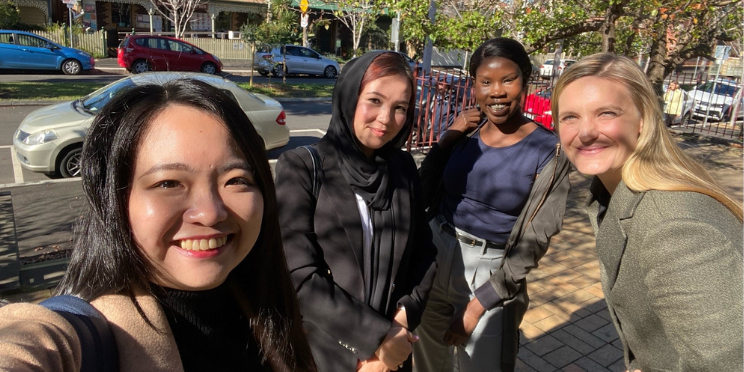
Since the beginning of the COVID-19 pandemic, the development of a vaccine has been sitting high on everybody’s wish list. The fact that we have several vaccine options available within such a short time is a phenomenal achievement. On the down side, we can all agree that with less than 2% of the population fully vaccinated, the immunisation roll-out across Australia has been less high-speed rail and more Puffing Billy.
In the face of vaccine delays and uncertainties, and as Victoria endures its fourth lock-down, it is so important to ensure that vaccine confidence and awareness is as high as possible, particularly among groups in our community that are at higher risk of contracting, and becoming unwell from, COVID-19.
Recent research has shown that migrant women are a key group who would benefit greatly from more information about COVID-19 vaccination. Hesitancy to get vaccinated is highest and, since August last year, has increased among women, people who speak a language other than English, people aged between 25 and 34 years of age, and people without a tertiary education. Importantly, many people who fall into one or more (or all) of these groups also make up a large percentage of Australia’s essential workforce – personal care attendants, food process workers, food retailers and cleaners.
Unsurprisingly, the research draws a link between people’s experiences in the health system and their trust in the safety and effectiveness of the vaccine. It shows that vaccine hesitancy is higher when people have lower levels of knowledge and trust in the vaccine research and development process and less confidence in the Australian health system. In addition, vaccine hesitancy is higher among people who have experienced discrimination, higher levels of financial stress and who have lower levels of optimism in the future.
To help close the urgent vaccine-confidence divide, public health campaigns must focus on building the trust of people from disadvantaged migrant communities, and women in particular. There is a need for up-to-date, accurate multilingual information to be delivered by trusted and trained health educators, in order to build understanding and awareness and to counteract whatever misinformation currently circulates unabated in the community. Information about when and how to access vaccination is similarly important to enable equitable use of the system.
Longer term, in order to address the discrimination and financial stress that migrant women experience, reducing sex and race structural discrimination, both in and outside of the health system in Australia, is key. COVID-19 has exposed the inequities in our systems. Now is the time to eliminate them.
